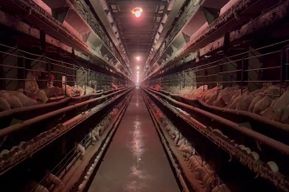
We have 30 days to take on Goliath – again
November 12, 2025
November 5, 2020
Over 15 million animals will be culled in Denmark, which is one of the largest exporters of mink furs, as concerns rise about the mutation in the novel coronavirus that has infected the farmed mink population, creating a risk of a new pandemic.
Yesterday, the Prime Minister Mette Fredriksen announced that the Danish fur industry will be banned from continuing its operations due to the worrying development of the spread of SARS-CoV-2 infection which has been found on 200 mink farms. This has created a mutation that has spread to humans.
The pressure is now growing in other countries to act, as coronavirus outbreaks at mink farms have also been recorded in the Netherlands, Spain and Sweden.

Over 15 million mink will now be killed and the industry could be banned from breeding mink in the coming years. The government considers it impossible to keep the infection away from the fur farms and sees this as the only possible solution for now. It has been reported that mutated viruses can make vaccines ineffective if the spread of the infection is allowed to continue.
Voices from the industry are predicting a permanent closure. Regardless of the motivation, this would spare millions of animals from suffering in small barren cages their whole lives.
Our Danish branch, Anima, now believes that if other countries follow the footsteps of Denmark to prevent the spread of the virus, this would spare millions of minks from lives of suffering each year.
Thorbjørn Schiønning from Anima says:
“It looks like mink farming is coming to an end in Denmark now for public health concerns. For the animals this is good news as life in a small cage can never be sufficient for their needs. Anima understands that this is a very difficult situation for the people in the industry, and we think the Danish government must make sure to compensate sufficiently to make sure that the affected families can get through this situation in a safe and fair fashion.”
In other European countries, thanks to the work of animal rights organisations such as our Estonian and Polish branches, Nähtamatud Loomad and Otwarte Klatki respectively, new bills are being drafted to ban fur farming in their countries.
This could finally lead to the last steps for a global fur industry ban.

Camilla Olesen is Head of Political Affairs and is based in Denmark. Her main responsibilities are to identify potential for improvements of the legal system and develop campaign strategies to drive forward legislative changes.
